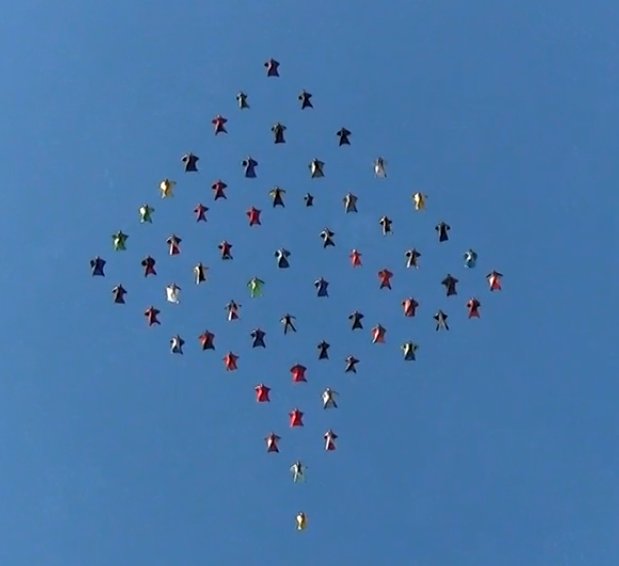Recommended Posts
billvon 3,173
The average combined global land and ocean surface temperature for June 2012 was 0.63°C (1.13°F) above the 20th century average of 15.5°C (59.9°F). This is the fourth warmest June since records began in 1880.
The Northern Hemisphere land and ocean average surface temperature for June 2012 was the all-time warmest June on record, at 1.30°C (2.34°F) above average.
The globally-averaged land surface temperature for June 2012 was also the all-time warmest June on record, at 1.07°C (1.93°F) above average.
I know, it doesn't fit the spin; my bad.
QuoteUmmm - NO. Once again you deliberately misrepresent the report.
No-one expects the temperature to increase monatonically, on account of other climate variables.
The long term warming trend is, however, unambiguous.
but if the rest of the year holds the pattern, and this is the 11th warmest year, then it will end up being cooler than last year, the 9th warmest, and would be the coldest or second coldest year in the last 12, which runs counter to all the talk about what a hot year this has been. In reality, it would mean the plateau continues.
kallend 2,219
QuoteQuoteUmmm - NO. Once again you deliberately misrepresent the report.
No-one expects the temperature to increase monatonically, on account of other climate variables.
The long term warming trend is, however, unambiguous.
but if the rest of the year holds the pattern, and this is the 11th warmest year, then it will end up being cooler than last year, the 9th warmest, and would be the coldest or second coldest year in the last 12, which runs counter to all the talk about what a hot year this has been. In reality, it would mean the plateau continues.
In reality it is more likely to mean that the normal Pacific Nino/Nina cycle is superimposed on the long term warming trend, as expected.
The only sure way to survive a canopy collision is not to have one.
brenthutch 444
QuoteQuoteQuoteUmmm - NO. Once again you deliberately misrepresent the report.
No-one expects the temperature to increase monatonically, on account of other climate variables.
The long term warming trend is, however, unambiguous.
but if the rest of the year holds the pattern, and this is the 11th warmest year, then it will end up being cooler than last year, the 9th warmest, and would be the coldest or second coldest year in the last 12, which runs counter to all the talk about what a hot year this has been. In reality, it would mean the plateau continues.
In reality it is more likely to mean that the normal Pacific Nino/Nina cycle is superimposed on the long term warming trend, as expected.
But what if the long term trend continues to plateau or even drop? Will you then say that you were wrong and I (et al) was correct?
kallend 2,219
QuoteQuoteQuoteQuoteUmmm - NO. Once again you deliberately misrepresent the report.
No-one expects the temperature to increase monatonically, on account of other climate variables.
The long term warming trend is, however, unambiguous.
but if the rest of the year holds the pattern, and this is the 11th warmest year, then it will end up being cooler than last year, the 9th warmest, and would be the coldest or second coldest year in the last 12, which runs counter to all the talk about what a hot year this has been. In reality, it would mean the plateau continues.
In reality it is more likely to mean that the normal Pacific Nino/Nina cycle is superimposed on the long term warming trend, as expected.
But what if the long term trend continues to plateau or even drop? Will you then say that you were wrong and I (et al) was correct?
The long term trend is UP, so your question is ill posed.
The only sure way to survive a canopy collision is not to have one.
brenthutch 444
kallend 2,219
QuoteYet I persist in my query. What will you say if the trend stabilize or declines? How many months? How many years? How many decades, before you concede that you were a hapless ideologue, lost in a fog of hemp and patchouli?
If pigs had wings, maybe they could fly.
The trend continues to be up, with an increasing ratio of extreme highs to extreme lows.
www.ucar.edu/news/releases/2009/images/temps_2.jpg
The only sure way to survive a canopy collision is not to have one.
jcd11235 0
QuoteHow many years? How many decades, before you concede that you were a hapless ideologue …
Oh, the irony!
brenthutch 444
QuoteQuoteYet I persist in my query. What will you say if the trend stabilize or declines? How many months? How many years? How many decades, before you concede that you were a hapless ideologue, lost in a fog of hemp and patchouli?
If pigs had wings, maybe they could fly.
The trend continues to be up, with an increasing ratio of extreme highs to extreme lows.
!Pick your metric and stick with it. Enough of moving the goalposts!
www.ucar.edu/news/releases/2009/images/temps_2.jpg
jcd11235 0
Quote!Pick your metric and stick with it. Enough of moving the goalposts!QuoteQuoteYet I persist in my query. What will you say if the trend stabilize or declines? How many months? How many years? How many decades, before you concede that you were a hapless ideologue, lost in a fog of hemp and patchouli?
If pigs had wings, maybe they could fly.
The trend continues to be up, with an increasing ratio of extreme highs to extreme lows.
www.ucar.edu/news/releases/2009/images/temps_2.jpg
How, exactly, have the goalposts been moved?
kallend 2,219
QuoteQuoteQuoteYet I persist in my query. What will you say if the trend stabilize or declines? How many months? How many years? How many decades, before you concede that you were a hapless ideologue, lost in a fog of hemp and patchouli?
If pigs had wings, maybe they could fly.
The trend continues to be up, with an increasing ratio of extreme highs to extreme lows.
!Pick your metric and stick with it. Enough of moving the goalposts!
www.ucar.edu/news/releases/2009/images/temps_2.jpg
Tell it to the National Academy of Sciences: "CLIMATE CHANGE is occurring, is very likely caused by human activities, and poses significant risks for a broad range of human and natural systems.”, NAS report, 2011
Oh, and NOAA too: www1.ncdc.noaa.gov/pub/data/cmb/bams-sotc/2011-peterson-et-al.pdf
The only sure way to survive a canopy collision is not to have one.
QuoteQuoteQuoteQuoteUmmm - NO. Once again you deliberately misrepresent the report.
No-one expects the temperature to increase monatonically, on account of other climate variables.
The long term warming trend is, however, unambiguous.
but if the rest of the year holds the pattern, and this is the 11th warmest year, then it will end up being cooler than last year, the 9th warmest, and would be the coldest or second coldest year in the last 12, which runs counter to all the talk about what a hot year this has been. In reality, it would mean the plateau continues.
In reality it is more likely to mean that the normal Pacific Nino/Nina cycle is superimposed on the long term warming trend, as expected.
But what if the long term trend continues to plateau or even drop? Will you then say that you were wrong and I (et al) was correct?
So instead of it being a warming year, then, it's a 'cold' year because of La Nina, a weather event that has been going on for centuries?
2010-11 was a La Nina year, but 2012 is not. NOAA does put a 50% chance of El Nino forming this summer, but that would mean warmer, not colder.
Seems like we're back to talking about the weather then...nothing about 2012 seems to support the grander notion of global warming.

.thumb.jpg.4bb795e2eaf21b8b300039a5e1ec7f92.jpg)



No-one expects the temperature to increase monatonically, on account of other climate variables.
The long term warming trend is, however, unambiguous.
The only sure way to survive a canopy collision is not to have one.
Share this post
Link to post
Share on other sites